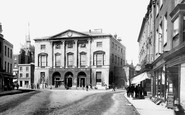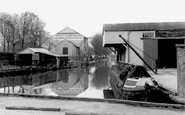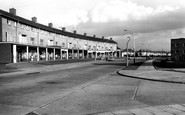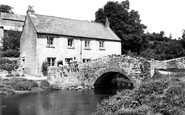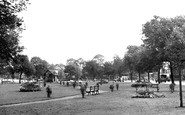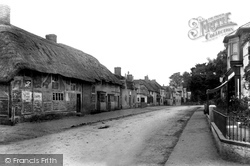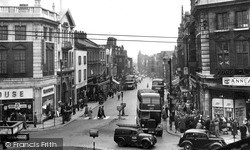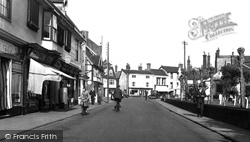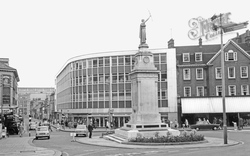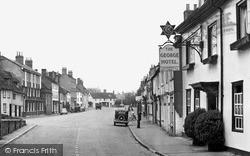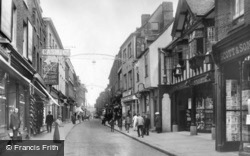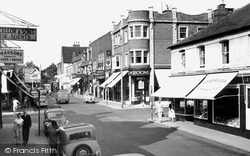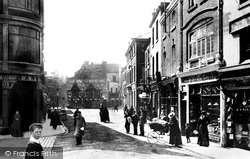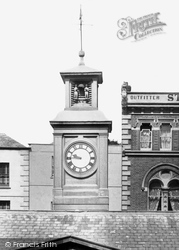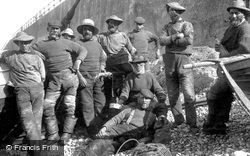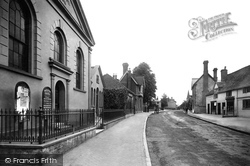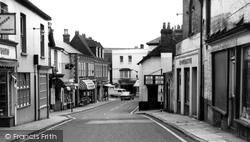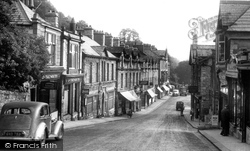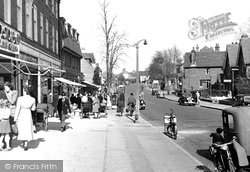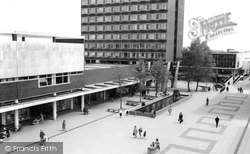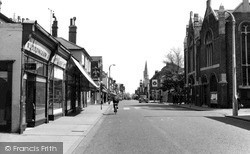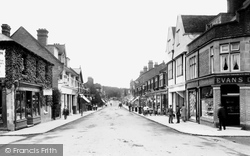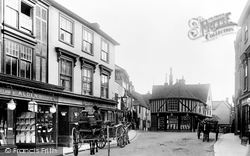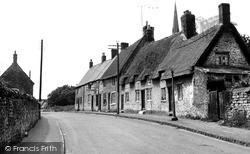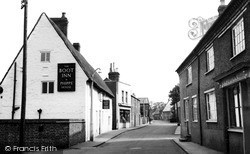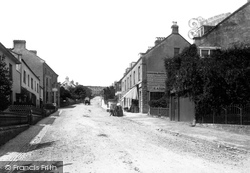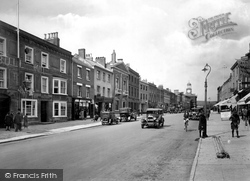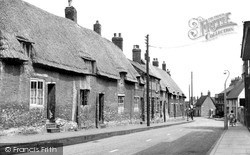Photos
56 photos found. Showing results 121 to 56.
Maps
118 maps found.
Books
1 books found. Showing results 145 to 1.
Memories
446 memories found. Showing results 61 to 70.
Chelmsford, Shire Hall 1895.
Many years ago the Shire Hall was where the Quarter Sessions trials were held. This would be the same as the Crown Court trials of to-day. The magistrates court was held in an old building which can still be seen in ...Read more
A memory of Chelmsford by
Valence Park
During the 1940's my Mother worked as a part time Park Keeper at Valence Park, I and my older sister spent many hours in the park, it was the safest place to be during an air raid, I remember the doodle bug hitting the houses in ...Read more
A memory of Dagenham in 1944 by
Growing Up In The War Years In Prees & Whitchurch
Although I was born in Whitchurch [Bark Hill], we moved to Prees soon after. However, I was sent to stay with my grandmother most weekends and for a period I was sent to the Wesleyan school. My ...Read more
A memory of Whitchurch in 1940 by
Grand Father
I am writing in response to the memories of Terry Richardson and in particular his memory of 'Pop' Rapley. Pop Rapley was my grand father and I too remember him as described, in his brown gaiters and highly polished boots, he worked ...Read more
A memory of Binfield in 1960 by
Sittingbourne To Australia
My name is Margaret. I was born in Park Road, Sittingbourne on 18.4.45. My parents were Flossie and Cyril Neaves. My dad worked as a machine man in the Sittingbourne paper mills and my mum worked fruit picking in the ...Read more
A memory of Sittingbourne in 1971 by
I Remember It Being Built
The building in your picture was called the 'new shops'. I recall going up there with my dad when it was being built. It must have been before 1960 I guess. I was born in 1949. The shops in that block included Boots, Wilkinsons, Forbouys, Greasleys, and the Co-op I believe.
A memory of New Parks
Heather And Gorse Clog Morris Dance At Rixey Park
Among the attractions at this year's annual Rixey Park Tractor Rally were the Heather and Gorse Clog Dancers and their band - a local dance team based at Combeinteignhead. For days beforehand ...Read more
A memory of Kingsteignton in 2008 by
The Waltham Abbey Choir And Other Memories
My family lived in Waltham Abbey from 1955 to 1961 and living there left a lasting impression on me. I attended Waltham Holy Cross County Primary School during this time and at the ripe old age of 8 ...Read more
A memory of Waltham Abbey in 1960 by
Happy Days At Mill Bridge
Hi to anyone looking at this photo, I lived just up the road at Valley Cottages and used to play by the bridge, we all sat on the bridge wall and had our photograph taken. I am on the right with wellington boots on, ...Read more
A memory of Bishop's Tawton in 1955 by
Monton Green C1950
In 1950 the paths and green at Monton Green had been newly laid out as it exists today. The paths were red gravel and if you so much as scuffed your boots in the gravel there was a 'park keeper' to reprimand you. I had my photo taken ...Read more
A memory of Eccles in 1950 by
Captions
344 captions found. Showing results 145 to 168.
The village also had a butcher, another grocer, two boot makes, an undertaker, a plumber, two carpenters, a market gardener and bee keeper and an insurance agent, as well as the three public houses.
On the opposite side of the road, Boots the chemists were still firmly entrenched on the corner of Sankey Street.
At this date it contains Sturgeon's, boot and shoe shop, and the International Stores.
We can see that the 1960s have arrived with this modern shop and office block, which is housing an enlarged Boots the Chemist.
Local sources state that the timber frame was indeed a fake - the battens were held in place by old football boot studs!
On the left is a formidable display of boots and shoes cascading over the shop facia.
Evans gave way to Boots, and Cousins ceased trading some years ago, after relocating to Park Street. St Georges Road is to the left, opposite Obelisk Street.
Also, by this time we often see names that we now know very well - on the wall at the end of the street is a sign for Boots, described here as 'Cash Chemists - Largest in the World'.
In 1905 it became the duty of the hotel boots boy to pull and tie down a cord which silenced the quarterjacks during the hours of darkness.
These men are suitably dressed for foul conditions in their thigh-length sea boots and thick fishermen's ganseys.
The buildig on the right is part of the White Horse public house, with the cottages of Clementina Carpenter, a tobacconist, and John Fosbury, a boot and shoe maker.
All the buildings on the right-hand side were soon to be demolished and the site redeveloped by Boots.
The old-style sign for Boots the chemists is in the centre of the left-hand row.
The parade of shops on the left are currently occupied by Thomas Cook, Abbey, a hairstylist and a photographic shop, whilst Boots is in the adjacent block.
The Town Square itself had begun to take shape by 1958, with the development of the shops on the left (incorporating Sainsbury's, Boots and Woolworth's).
Further along is the Golden Eagle pub and Boots the Chemist. The Methodist church, right, makes an austere impression.
Evans gave way to Boots, and Cousins ceased trading some years ago, after relocating to Park Street. St Georges Road is to the left, opposite Obelisk Street.
Here, it is Frederick Pluck's - supplier of boots, shoes, woollens and tailoring.
The village expanded with the boot and shoe works in the later 19th century, but the original stone village survives.
The Boot Inn, an 18th-century painted stone and thatched-roofed building, survives, while the shop beyond is now Whibley's, a newsagent and general store.
The sign lists 'linen and woollens, clothing, hats, fancy articles, boots and shoes, groceries and ironmongery'.
On the other side (left of the cars) boot and shoe seller George Percival Read boasts 'Established 1844' and iin the 1930s would be offering 'Moccasin', 'Norvic' and 'Mascot' brands.
In 1905 it became the duty of the hotel boots boy to pull and tie down a cord which silenced the quarterjacks during the hours of darkness.
It began as an agricultural community; it later developed as an industrial centre, concentrating on rush mats, lace, the quarrying of ironstone, and the manufacture of boots and shoes.
Places (0)
Photos (56)
Memories (446)
Books (1)
Maps (118)



